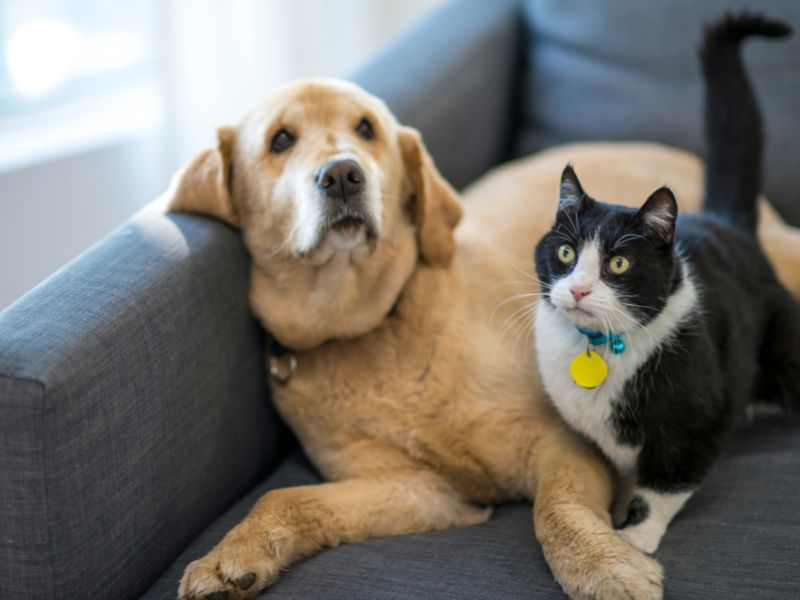
Top Ten Things – Pet care requires consistent attention and dedication every day. You provide fresh food, clean water, and a safe environment. Regular exercise keeps pets active and engaged. You schedule veterinary checkups to monitor health. Grooming sessions prevent discomfort and maintain hygiene. You also offer mental stimulation with toys and interaction. Positive reinforcement helps build trust and good behavior. Observing changes in habits can alert you to potential problems. A loving and patient approach ensures pets feel secure. Your efforts directly impact their well-being and happiness. Committing to daily routines makes care second nature. A healthy pet often leads to a more joyful household overall, creating stronger bonds between animals and their humans in every stage of life.
“Read More: Private Tour Bangkok Chinatown – The Way of Life Experience”
You select pet food with the right balance of proteins, fats, and essential vitamins. Reading labels helps you avoid harmful fillers or artificial additives. You adjust portion sizes according to age, breed, and activity level. Consistency in meal schedules keeps digestion steady and predictable. You monitor weight changes to detect dietary issues early. When needed, you consult veterinarians for specific recommendations. You occasionally introduce fresh, pet-safe fruits or vegetables for variety. Hydration remains a constant priority alongside meals. Transitioning food gradually prevents stomach upset. Balanced nutrition forms the foundation for overall health and energy levels.
You schedule daily playtime to match your pet’s needs. Dogs enjoy walks, fetch, and agility activities. Cats benefit from climbing, chasing toys, and short bursts of active play. You rotate toys to keep engagement high. Outdoor time, when safe, offers stimulation through new scents and sights. You adjust exercise intensity based on age and health conditions. Even small pets require space to move freely. You monitor for signs of fatigue to prevent overexertion. Consistent exercise supports healthy weight and mental balance. Your commitment to activity strengthens the bond you share.
“Read About: Top 10 Reasons Coral Reefs Are the Rainforests of the Sea”
Responsible pet care starts with scheduling regular veterinary checkups and health screenings. Routine visits help detect problems early, ensuring your pet receives timely treatment. During these visits, veterinarians perform physical exams, dental checks, and vaccinations. You can also discuss any behavioral or dietary changes, while annual blood tests reveal hidden health concerns. By following through with recommended treatments or lifestyle adjustments, you reduce the risk of serious illnesses. Tracking medical history makes emergencies easier to handle, and preventive care often costs less than treating advanced conditions. Ultimately, a proactive approach keeps pets healthier for longer and offers peace of mind for both owner and animal.
Proper grooming is an important part of responsible pet care. You brush fur to prevent matting and shedding buildup. Bathing schedules depend on coat type and lifestyle, while trimming nails avoids discomfort and mobility issues. In addition, cleaning ears and eyes prevents infections, and using pet-safe products protects skin health. Dental care—whether brushing or offering dental chews—keeps breath fresh and gums strong. Furthermore, grooming sessions give you the chance to check for parasites or skin problems. By rewarding cooperation with treats or affection, you make maintenance easier, keeping pets both comfortable and confident.
Another key aspect of responsible pet care is providing mental enrichment. You can use puzzle feeders, scent games, and new toys to keep pets engaged. Regular variety prevents boredom and destructive behavior. Training sessions with positive reinforcement challenge your pet’s mind, while interactive play builds trust and communication. Moreover, rotating enrichment activities keeps interest alive, and social interaction with other animals adds diversity. By observing which games excite your pet most and keeping sessions short but frequent, you help reduce anxiety and restlessness. Active minds lead to happier, more adaptable pets.
Positive reinforcement ensures training is effective and humane. You reward good behavior immediately with treats, praise, or play. Consistency in commands helps pets learn faster, while avoiding punishment maintains trust. Short, focused sessions prevent frustration, and gradually increasing difficulty keeps learning fun. If unwanted habits appear, redirect energy toward acceptable activities. Socializing young pets early also builds confidence. With patience at the core, positive reinforcement creates lasting results, making well-trained pets integrate smoothly into family life.
In responsible pet care, observation is critical. You notice shifts in energy, appetite, or sleep patterns, as these changes may indicate health or emotional concerns. Keeping a journal helps identify trends over time, and consulting a veterinarian when unusual behaviors persist ensures timely intervention. Observing body language reveals comfort or stress levels, while adapting routines to current needs strengthens your caregiving role. Detailed observation can save lives, and awareness leads to proactive, compassionate action.
A safe home is essential for responsible pet care. You remove hazards such as toxic plants, sharp objects, and unsafe foods. Providing a quiet resting area helps pets relax, while proper temperature control ensures comfort year-round. Secure fencing or enclosures prevent escapes, and comfortable bedding supports joint health. Organizing play areas encourages activity, and safe environments reduce accidents and stress. When pets feel secure, they are more confident exploring their surroundings, which directly impacts happiness.
Socialization helps pets adjust to life’s changes. You can introduce them to various environments, people, and animals gradually. Positive early experiences build resilience, and monitoring interactions ensures safety and comfort. Group classes or playdates provide structured socialization, while rewarding calm behavior reinforces good manners. Exposure to different sights and sounds reduces fear responses. By adjusting the pace according to your pet’s personality, you create confident companions who adapt well to new situations.
Finally, responsible pet care means staying informed. You read books, take courses, and seek expert advice. Veterinary newsletters and workshops provide updated guidance, while experimenting with new enrichment ideas keeps your approach fresh. Attending seminars sharpens your skills, and sharing knowledge with other pet owners spreads good practices. Continuous learning ensures you adapt to evolving needs, enhancing your pet’s quality of life. With dedication and curiosity, you remain an engaged, capable caregiver—benefiting both you and your companion.